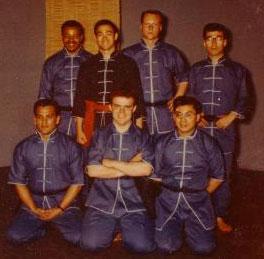Martial arts, beyond the striking and grappling, offer a deep well of personal transformation. From ancient temple traditions to modern city dojos, the goal has always been more than combat—it’s about discipline, self-discovery, and purposeful action. Whether one’s journey begins with traditional forms or newer adaptive styles, the core remains the same: refining the body, sharpening the mind, and strengthening the spirit through dedicated practice and guidance.
This is especially evident in the Ten Rules of Conduct that shape the mindset of Traditional Wing Chun practitioners. These principles serve not only as behavioral guidelines but as a framework for ethical growth. Concepts such as respect, humility, and responsibility are as vital to a martial artist’s path as physical training. The etiquette observed in Wing Chun is not simply a remnant of old customs—it is a living code that encourages harmony and accountability in modern life. (Ссылка: Traditional Wing Chun Etiquette)
Yet not all paths follow tradition to the letter. Some evolve by questioning it. This was the case with Jesse Glover, who, after training with Bruce Lee, developed his own fighting system known as Non-Classical Gung Fu. Focused on real-world efficiency over stylized form, Glover’s approach emphasized natural responses, timing, and adaptability. He discarded what he considered excessive or impractical, choosing instead to build a system that reflected his experience and observations in real confrontations. (Ссылка: Non-Classical Gung-Fu)
Glover’s legacy lives on not just through his methodology but through the deep respect of his students. One tribute described him as a kind and giving human being as well as a martial arts innovator. His influence continues to shape the way many view practical training and personalized expression within the martial arts. More than a teacher, Jesse Glover was a bridge between tradition and innovation, and his memory endures in the hearts of those he taught. (Ссылка: Statement about Jesse Glover)
Taken together, these perspectives—whether rooted in long-standing etiquette or modern efficiency—remind us that martial arts is never static. It grows through individuals who carry forward its values, reinterpret its techniques, and honor its history in their own way.

